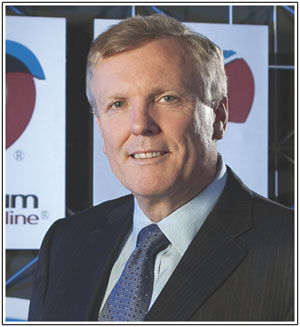
Rutledge
Despite claims from Net Neutrality critics that increased oversight of the broadband business would lead to reduced investment and upgrades, Charter Communications CEO Thomas Rutledge said the new rules would have no effect on Charter’s investment plans.
Last week Rutledge sat down with FCC chairman Thomas Wheeler to discuss Charter’s proposed merger with Bright House Networks and Time Warner Cable. He was joined by Catherine Bohigian, Charter’s executive vice president for governmental affairs and FCC general counsel Jonathan Sallet and senior counselor Phil Verveer.
“Mr. Rutledge explained that the transactions will bring substantial consumer benefits, including providing a better Internet experience for watching on-line video, gaming, and using other data-hungry apps at more competitive prices, and that the mergers will not harm competition,” according to a one page filing with the FCC disclosing the meeting.
Despite repeated claims from pro-industry policy wonks that Net Neutrality and Title II oversight of cable broadband would cause operators to reconsider their investment plans, Rutledge made it clear Charter’s spending plans are unaffected.
“Mr. Rutledge agreed that the Commission’s decision to reclassify broadband Internet access under Title II has not altered Charter’s approach of investing significantly in its network to deliver cutting edge services including: the fastest entry-level broadband service (60 Mbps) with unlimited usage; out-of-home Wi-Fi hotspots; a state-of-the art, cloud-based user guide, allowing search and discovery across linear, video on demand and online content; open, non-proprietary downloadable security; and an innovative video app with hundreds of live and downloadable channels and the ability to display over-the-top content seamlessly on the television,” the disclosure continues.
Charter’s chief executive said the company supports Open Internet rules, including no throttles or blocks on lawful content and no paid prioritization. But he does worry about regulatory uncertainty while the FCC explores its expanded powers of oversight.


 Subscribe
Subscribe
Please keep me updated